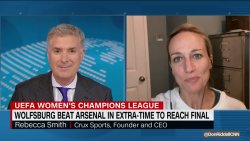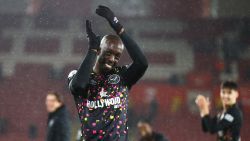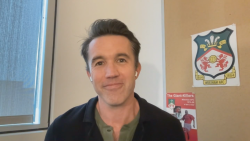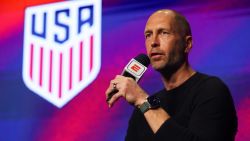Story highlights
Atkin is English football's first openly gay referee
Has officiated in English football's lower leagues
Says reaction to his coming out has been positive
Homophobic abuse exists worldwide in football
There are no openly gay players in English football’s top five leagues, a fact many attribute to some of the cultural problems that surround the game.
Just last weekend, homophobic chanting was heard at a Premier League game between Leicester City and Brighton and Hove Albion on Saturday. Two Leicester fans were subsequently arrested, and it is thought that around 50 supporters participated in the abuse.
For Ryan Atkin, the first openly gay referee in English football, the incident was a timely reminder that the sport has plenty to do in tackling homophobia.
“It’s not acceptable for people to do that sort of thing,” Atkin, who came out publicly in August, told CNN, referring to what had happened at Leicester.
“It may not be people that are playing; there are a lot of LGBT supporters, a lot of LGBT young people who go to football who could be LGBT and haven’t told their family. When you’ve got people shouting those things, you’re not helping those people at all.”
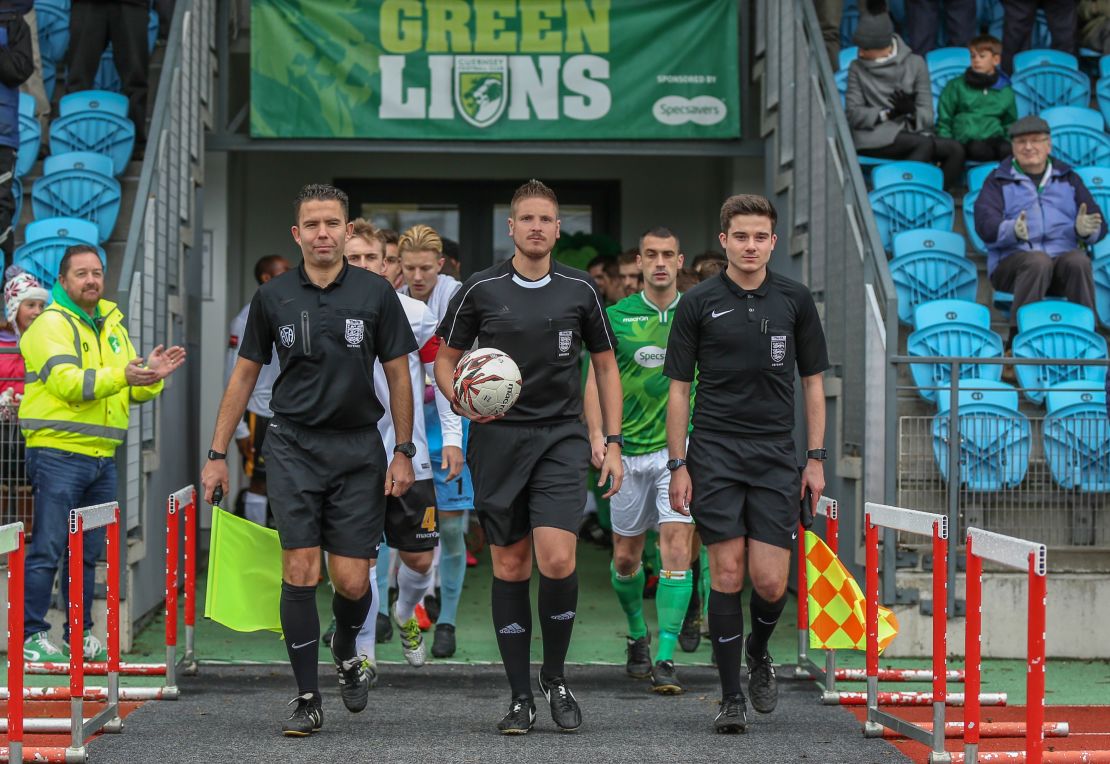
READ: Wayne Rooney retires from international football
Positive response
The issue is by no means unique to Britain.
Concerns have been raised over Russia and Qatar’s viability to host World Cups in 2018 and 2022 in light of attitudes towards LGBT communities in those countries.
The Russian government banned the promotion of “non-traditional” sexuality in 2013, while same-sex activity in public is illegal in Qatar.
READ: Can Neymar prove a financial return of investment?
LA Galaxy’s Robbie Rogers, one of football’s few openly gay players, has called it “insane” that such countries have been allowed to host major tournaments.
Meanwhile in July, US President Donald Trump said that transgender individuals would not be eligible to “serve in any capacity” in the US military.
“I thought it was the right time, I think the games needs it,” says Atkin, explaining his decision to come out.
“We’re at a time in the world where we’ve got all the trouble in America when it comes to transgender people, the World Cup is going to countries where LGBT is still illegal.
“I just think the fans need to understand that people are LGBT, but that’s their personal life and you judge them on their profession and not their personal life.”
Positive message
Atkin will referee games in the National League North and South this season, as well as operating as a fourth official in Football League games.
He says his coming out has been received positively.
“It’s been a fantastic experience. I’ve received so many positive messages from people all over the world, and I think that’s something that’s touched me.
“It’s come from people I wouldn’t have expected – from people who are from countries where it’s illegal to be gay, people who don’t watch the sport but are now interested in it because there are LGBT people within the professional game.”
Atkin’s story has since been shared by the FA and the English Football League – two of the sport’s leading governing bodies in England – and he has worked alongside the LGBT campaign groups Stonewall and Rainbow Laces.
He also featured prominently in the blog of former Premier League player Phil Neville.
READ: Why Nigeria loves the Premier League
‘Positive allies’
As for the future, Atkin says that the sport needs more role models to serve as leading voices for LGBT people in sport.
“For me it needs positive allies, it needs people who are not necessarily LGBT and they’re the people that need to challenge people when remarks are made,” said Atkin.
“You need people within the sport who are respected – who are looked up to – to start changing minds. That will be a great asset.
Visit cnn.com/football for more news and videos
“It’s about education – whether you can remove someone and allow them back to football. I don’t think you can start banning everybody, but take them away, educate them, and bring them back into football. It shows a good story.”


